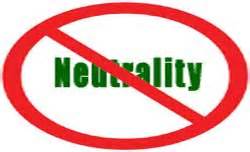“Yes, we want to be effective in pursuit of important goals. But when measurable, short-term outcomes become the only or primary standard for assessing our efforts, the upshot is as pathetic as it is predictable: we take on smaller and smaller tasks–the only kind that yield instantly visible results–and abandon the large, impossible but vital jobs we are here to do…We must judge ourselves by a higher standard than effectiveness, the standard called faithfulness…When faithfulness is our standard, we are more likely to sustain our engagement with tasks that will never end: doing justice, loving mercy, and calling the beloved community into being.”–Parker J. Palmer, “Healing the Heart of Democracy”
Three weeks ago I attended a Clergy Renewal Retreat sponsored by my denomination. I’ll be honest; I wasn’t sure what to expect. Normally the retreats I’ve attended have been so full of activities I’ve returned home more exhausted than when I left. Although most of the information I received was valuable, “retreat” probably wasn’t the most accurate word to describe these events.
This time, however, was different. There was plenty of downtime scheduled. And while I have a complicated relationship with meditation and sitting in silence, I was actually able to appreciate the times our group sat in silence while considering a poem, other reading or the deep personal sharing of a colleague. There was no heavy reading to complete before or during the retreat, either–a huge plus for me! I returned home three days later surprisingly refreshed.
My favorite quotes from the week are the ones which open this post. I like them because they remind me of my tendency to focus on results. After all, before becoming a clergy person 13 years ago, my career focus was accounting and administration. I’m quite familiar with financial statements, trend analyses, as well as writing and implementing policies and procedures.
These skills have served me well in professional ministry, too. And let’s face it, congregations can be just as “results focused” as any non-religious for-profit entity. Some groups base effectiveness on how many people have been “saved” and/or baptized. Others focus on attendance and finances. People like me and other church leaders look at trends, gauge volunteer energy levels, facilitate meetings to obtain feedback about our congregations as well as suggestions for moving forward. Then if the results we worked so hard for don’t materialize, we often conclude we aren’t effective and the cycle begins again–if we don’t give up altogether, that is.
This cycle isn’t unique to church world or the for-profit business world, either. We tend to judge ourselves pretty harshly at times when we feel we aren’t effective enough in our lives. We don’t complete an educational goal by our original goal date. We don’t make our goal weight by our pre-selected date. The smoking cessation program we started didn’t work as well as we thought. No matter how hard we work on that special relationship, it feels as though its doomed. Whatever the case, we determine we aren’t effective and the wheels of negative self-judgment begin to turn.
On the last day of the retreat I re-read the quotes at the beginning of this post. During a time of silence I came to the conclusion that no matter what issues I face, my primary responsibility is to be faithful. And I don’t mean faithful in the sense of following established religious doctrine and dogma or a pre-ordained Divine path for my life. If that were the case, and given all the twists and turns my life has taken, I must be taking the long and winding road–the really long and winding road.
When I say “faithful,” I mean doing my best. Am I making the best use of my skills and gifts? Am I acting with integrity and honesty? Do I admit when I’m wrong, make amends when possible and then move on in a more positive direction than before? Do I forgive others? Do I forgive myself? If I can answer “yes” to these questions–realizing that “yes” includes the imperfect ways in which I attempt to be faithful–then in my view, I’m faithful.
Of course being faithful doesn’t exempt any of us from working for effectiveness in our lives. It’s all part of being good stewards of the gifts and skills with which we’ve been blessed. As a matter of fact, perhaps in being faithful we are being effective–each in our own imperfect ways.
Just something to consider the next time we start beating ourselves up…
Blessings on your journeys!
